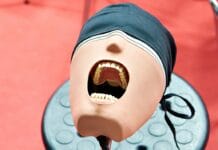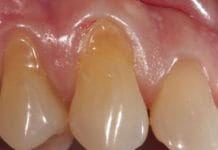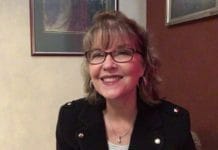Dental hygiene is an amazing field to work in, offering great rewards such as the financial ability to take care of family, a flexible work schedule, and the pride of saying that you’re a licensed health care professional. Every hygienist has experienced the great feeling of passing the national and clinical boards after earning the degree they have spent two to four years diligently studying for.
After what seems like months, dental hygienists finally receive a license to practice! We land a job at a fantastic office (or not so fantastic), and we’re eager to work ‒ only to realize that we’re no longer students. We no longer have guidance from instructors, and it hits that we are in the real world.
Now what?
Speaking from personal experience, I was unfamiliar with treatment planning when I started working in private practice. I was uncomfortable using the ultrasonic, and I had no idea how I would complete a recall patient in only an hour. As a newly graduated hygienist, I took heed to an old saying, but with an added twist: Face it until you make it! (Yes, face it!).
After practicing for several years now, I can say that I’ve made it, and I would like to share some words of encouragement for the recent graduate or for those who are still waiting for it all to click.
Understanding the Dentist
Practicing with complete confidence truly takes some time. Every dentist is different, and every office is unique. So be kind to yourself. In my years of practice, one of the things that have helped me the most is proactively learning and studying the doctor I work with.
During downtime, I review radiographs and intraoral photos and ask what exactly they’re looking for when they diagnose. This has allowed me to become more acclimated to their processes, making a more efficient appointment for the patient.
This did not happen overnight! It takes practice and also patience from the treating dentist. As you gain more experience, the treatment planning process becomes easier. For example, if tooth #14 needs a DO filling due to class II caries and #15 needs a buildup and crown, it makes sense to phase the prep for both teeth at the same time since the interproximal contact is more accessible.
Also, providers may have different approaches to treatment, such as worn amalgam restorations. Understanding how your dentist views their protocols will help you better understand treatment planning processes. For example, compromised margins of a large alloy with cracks in the supporting tooth structure may warrant a full-coverage crown. The urgency of treatment, though, may depend on how severe the dentist believes the signs and symptoms are. Knowing the treating provider’s path of thinking will help to co-diagnose, and make for a better experience for the patient.
This concept may seem like common sense to a seasoned hygienist. However, we all did not start with experience, and we all had to learn these concepts at some point.
Comparing Yourself to Others
Comparison, also known as the thief of joy, is something that also happens when you’re trying to find your footing in the field. Am I as good as the other hygienist in the office? Maybe I’m not as great at this as I thought I would be. Is my production above or below average? Am I pulling my weight?
If you are a new hygienist at the practice, you will also most likely encounter the agony of being compared to the previous hygienist who “used to work there” or “usually cleans my teeth.” Whether you are self-critical or being criticized by others, you will learn to distinguish between the two and create mechanisms to work through them. Learning to become confident in your abilities as a clinician starts with honing in on your own strengths and talents, not comparing yourself to others.
For example, if you struggle with giving anesthesia, you may be stronger than most in time management. Whether it is evident or not, all clinicians struggle with something. The goal is to learn from each other. Dental hygiene school has taught us to support one another, which should not stop at the institutional level.
The Strength of Asking
Ask questions! If something does not make sense, even if you think you should know this, ask anyway! Clarification on uncertain topics is what will help you grow. Dentistry is ever-evolving, and guidelines are forever changing. Asking for help does not make you weak or incompetent. It means that you are passionate about what you do and want to give your patients the best treatment possible.
In fact, asking questions is the gateway to making it all click. Personally, if I did not ask for clarification throughout my career, I would still be treading water! Being open to continuous learning will build confidence. It works for me still to this day!
Becoming a dental hygienist can be both exhilarating and scary at the same time. Luckily, there will become a time when it all makes sense, and you begin to discover your true why.
Learning how to palpate the head and neck and performing oral cancer screenings changes from looking for lumps and bumps to truly understanding that we have the ability to save lives. Walking the periodontal probe and charting numbers may seem like a chore at first, but it starts to click that we are looking for signs of infection which have the ability to enter the bloodstream and can cause systemic inflammation and disease. Ferociously scaling in hopes of removing all deposits will eventually fade, and understanding the curvature of the roots and effective removal will take place.
The light bulb will go off one day, and that is when your journey will truly begin.
Before you leave, check out the Today’s RDH self-study CE courses. All courses are peer-reviewed and non-sponsored to focus solely on high-quality education. Click here now.











